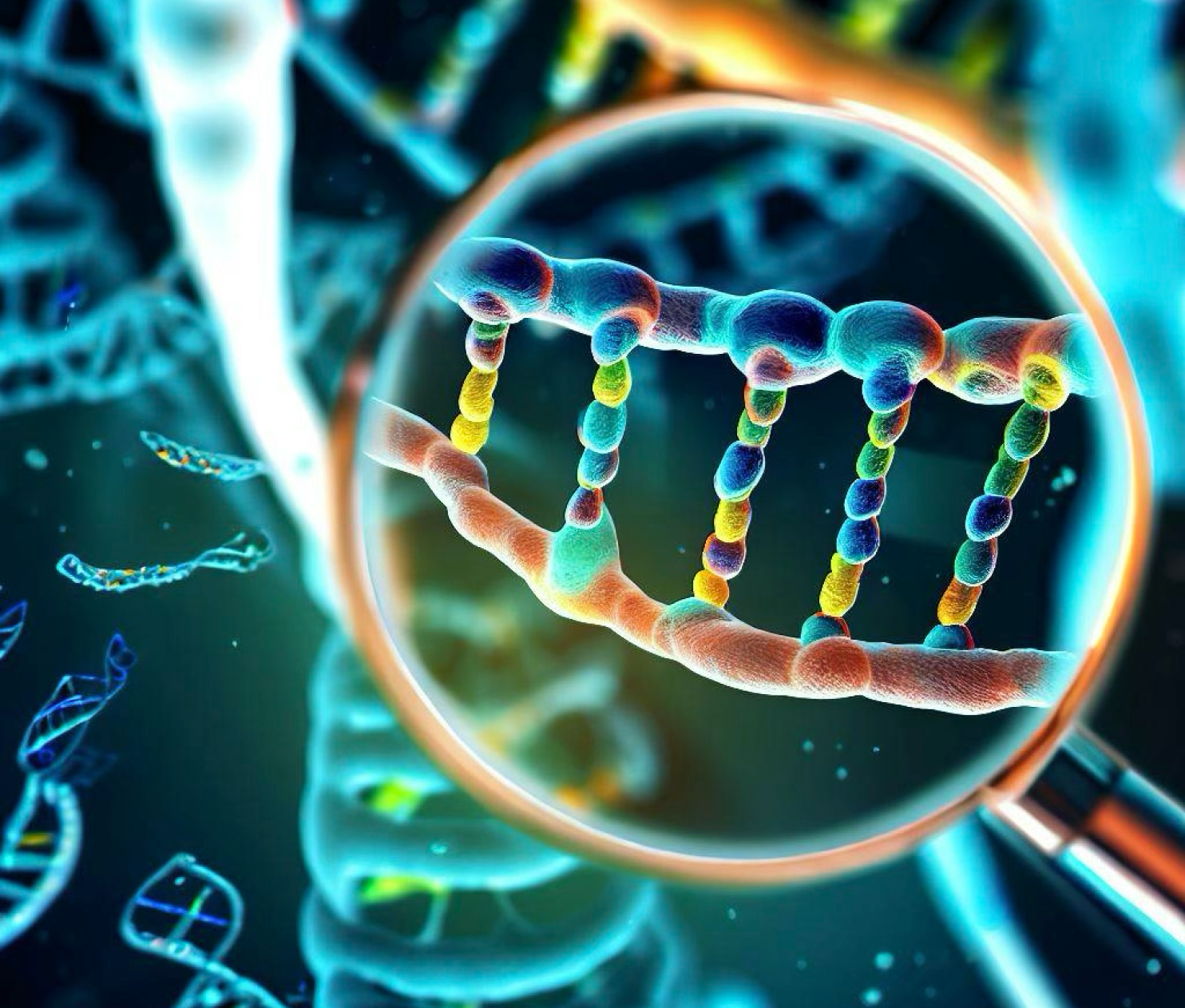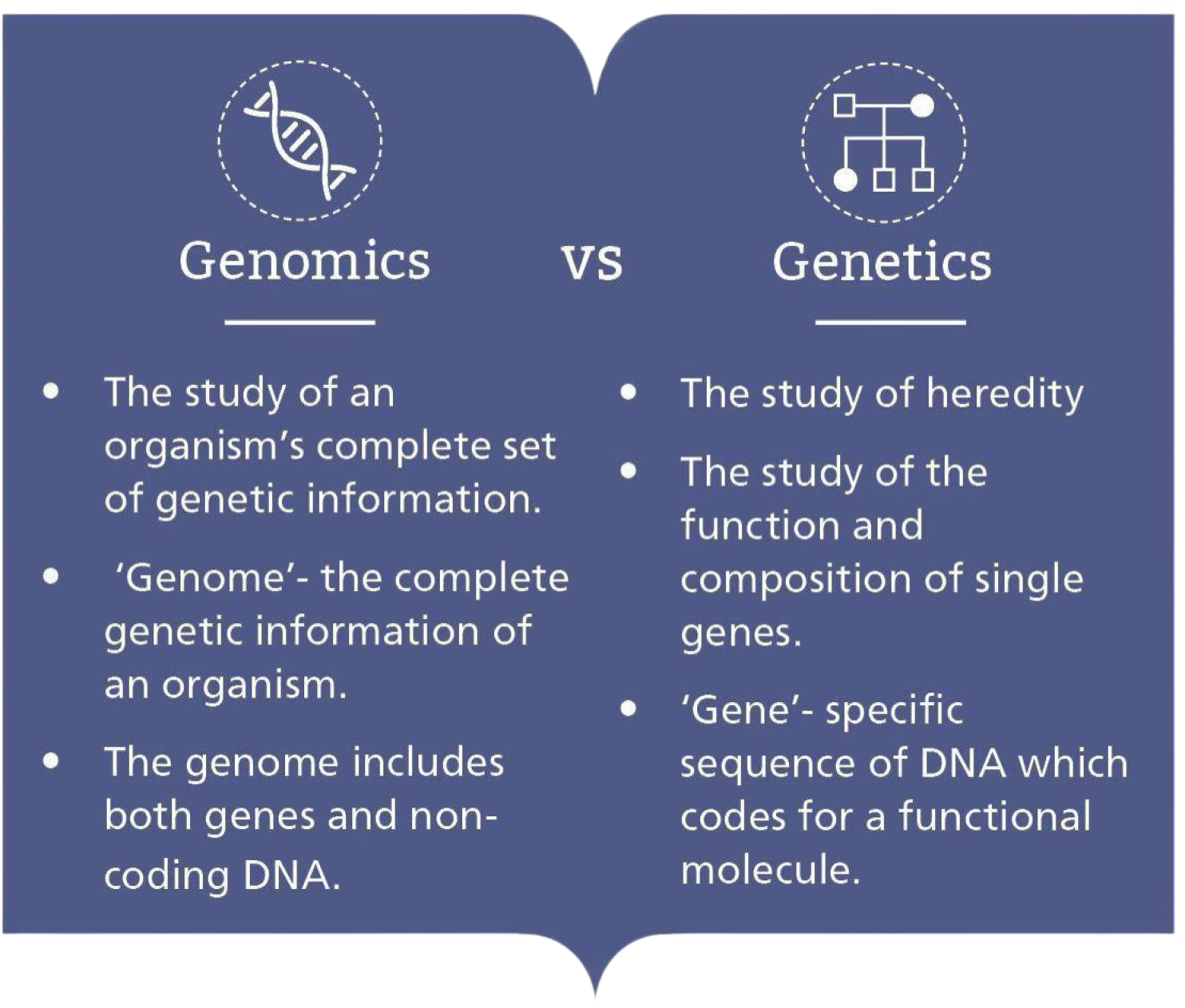Understanding the Difference Between Genetics and Genomics
July 29, 2023
·Bayan Abu Alragheb

Genetics and genomics are two terms that are often used interchangeably in the field of biological sciences. However, they represent distinct, albeit interconnected, areas of study. This article aims to shed light on the difference between genetics and genomics, and how each field contributes to our understanding of life and disease.
Genetics: The Study of Single Genes
Genetics is the study of single genes and their role in the way traits or conditions are passed down from one generation to another. It focuses on the inheritance and variation of traits, as well as the molecular structure and function of genes. Geneticists often study how individual genes are transmitted and how they affect the organism.
Genetic research often involves studying specific genes that are linked to certain diseases. For example, the BRCA1 and BRCA2 genes are known to increase the risk of breast and ovarian cancer. Genetic testing can identify these inherited gene mutations, providing valuable information about an individual's risk of developing certain types of cancer.
Genomics: A Wider Lens
On the other hand, genomics is a more recent field that involves the study of the entire genome of an organism. The genome includes all the genes of an organism, as well as the sequences of DNA between the genes. Genomics studies how these genes interact with each other and the environment.
Genomic testing, unlike genetic testing, examines large sections of genetic material, including non-coding regions of the genome that do not directly produce proteins but may still influence health and disease. For instance, genomic testing can identify mutations within the cancer cell itself, which can guide treatment decisions and enable targeted therapies with reduced side effects.
Research Approaches in Genetics and Genomics
The research approaches in genetics and genomics also differ. Genetic research often involves the study of families and how certain traits or diseases are inherited. It may also involve laboratory experiments using model organisms like fruit flies or mice.
Genomic research, on the other hand, often involves high-throughput techniques, such as next-generation sequencing, to quickly and cheaply read whole genomes. This approach generates a vast amount of data, which is then filtered, analyzed, and interpreted by a multidisciplinary team of health professionals.

The Interplay of Genetics and Genomics
While genetics and genomics are distinct fields, they are deeply interconnected. The study of individual genes (genetics) provides the foundation for the broader study of all genes and their interactions (genomics). Together, they offer a comprehensive understanding of biology and disease, from the single gene level to the entire genome.
In the context of healthcare, both genetic and genomic testing can have a significant impact on cancer care. Genetic risks can aid in early detection and prevention strategies, while genomic profiling of tumors allows for more precise, targeted treatments.
Conclusion
In conclusion, while genetics and genomics are related, they offer different perspectives and approaches to understanding biology and disease. Genetics focuses on the study of individual genes and their roles in inheritance, while genomics takes a broader view, studying all the genes in a genome and their interactions. Both fields are crucial for advancing our understanding of biology and improving human health.
As we get deeper into the era of personalized medicine, platforms like Bionl.ai are leveraging the power of genomics and genetics to revolutionize biomedical research.
Related Posts
- Bioinformatics
- Genomic
Unlocking the Final Frontier: The Completion of the Human Genome Sequence and the Y Chromosome
In a monumental scientific achievement, researchers have recently completed the sequencing of the human genome, including the elusive Y chromosome. This milestone marks a new era in genomics, offering unprecedented insights into human biology, evolution, and the potential for personalized medicine. This blog delves into the significance of this groundbreaking work and what it means for the future of science and medicine.
Oct 2023
Tasnim Nour
- Bioinformatics
- BioAgents
How Are BioAgents Shaping the Future of Biomedical Applications and Clinical Decision Support?
introducing BioAgents, specialized agentic systems built on large language models (LLMs) that are designed to transform bioinformatics and clinical decision support.
Aug 2025